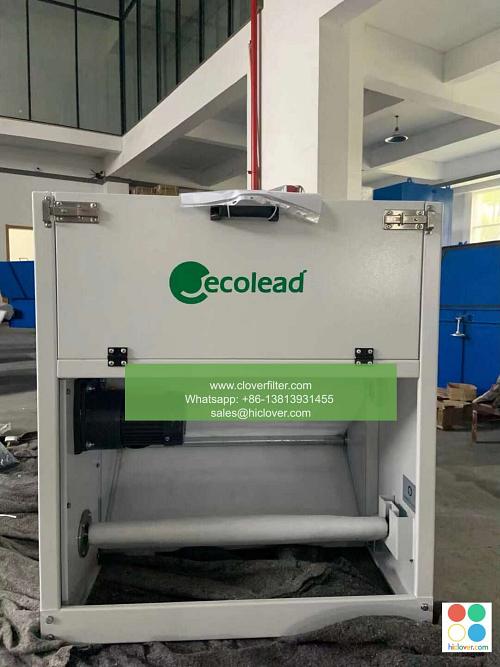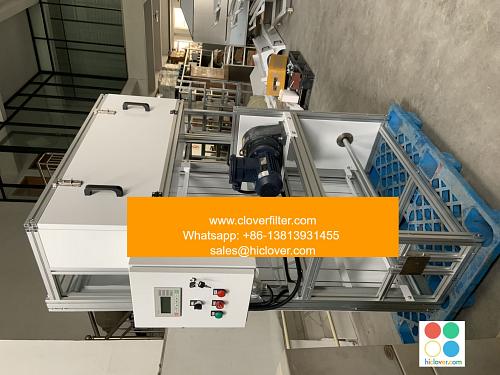Reducing Particulate Matter in Western University Labs with Automatic Roll Air Filters

The presence of particulate matter (PM) in laboratories can have significant implications for the health and safety of researchers, as well as the accuracy of experiments. Western University has taken a proactive approach to mitigate this issue by implementing automatic roll air filters in their labs. In this article, we will explore the benefits of using these filters, their application areas, and how they contribute to a healthier and more efficient research environment.
Introduction to Automatic Roll Air Filters
Automatic roll air filters are a type of air purification system designed to capture particulate matter, including dust, pollen, and other airborne contaminants. These filters are equipped with advanced technology that enables them to automatically roll out a new filter media when the existing one becomes saturated, ensuring continuous and efficient air cleaning. By incorporating these filters into their labs, Western University aims to reduce PM concentrations, minimize the risk of airborne contamination, and create a safer working environment for researchers.
Key Benefits of Automatic Roll Air Filters
The implementation of automatic roll air filters in Western University labs offers several key benefits, including:
- Improved Indoor Air Quality (IAQ): By capturing particulate matter, these filters help to maintain a healthier indoor air environment, reducing the risk of respiratory problems and other health issues associated with poor air quality.
- Increased Efficiency: Automatic roll air filters minimize the need for manual filter replacement, reducing maintenance costs and allowing researchers to focus on their work.
- Enhanced Experiment Accuracy: By reducing airborne contamination, these filters help to ensure the accuracy and reliability of experimental results, which is essential in various fields, including biomedical research, pharmaceutical development, and materials science.
- Compliance with Regulatory Standards: The use of automatic roll air filters helps Western University labs to meet or exceed regulatory standards for indoor air quality, ensuring a safe working environment for researchers and compliance with OSHA and EPA guidelines.
- Chemistry and Biochemistry Labs: These filters are particularly useful in laboratories where chemical reactions, biological experiments, and sample preparation take place, as they help to minimize the risk of airborne contamination and ensure a safe working environment.
- Biosafety Level (BSL) Labs: In BSL-2 and BSL-3 labs, automatic roll air filters play a critical role in reducing the risk of aerosol transmission and pathogen exposure, ensuring the safety of researchers working with infectious agents.
- Nanotechnology and Materials Science Labs: The use of these filters helps to prevent nanoparticle contamination and ensures the accuracy of experimental results in nanotechnology research, materials synthesis, and characterization.
- Pharmaceutical and Biomedical Research Labs: Automatic roll air filters are essential in these labs, as they help to minimize cross-contamination, prevent product spoilage, and ensure compliance with regulatory standards, such as GMP and GLP.
Application Areas for Automatic Roll Air Filters
The application areas for automatic roll air filters in Western University labs are diverse and include:
Conclusion
The implementation of automatic roll air filters in Western University labs has significantly contributed to reducing particulate matter and creating a healthier and more efficient research environment. By minimizing airborne contamination, these filters ensure the accuracy of experimental results, comply with regulatory standards, and provide a safe working environment for researchers. As research institutions continue to prioritize the health and safety of their personnel, the use of automatic roll air filters will become increasingly important in various application areas, including biomedical research, pharmaceutical development, nanotechnology, and materials science.


